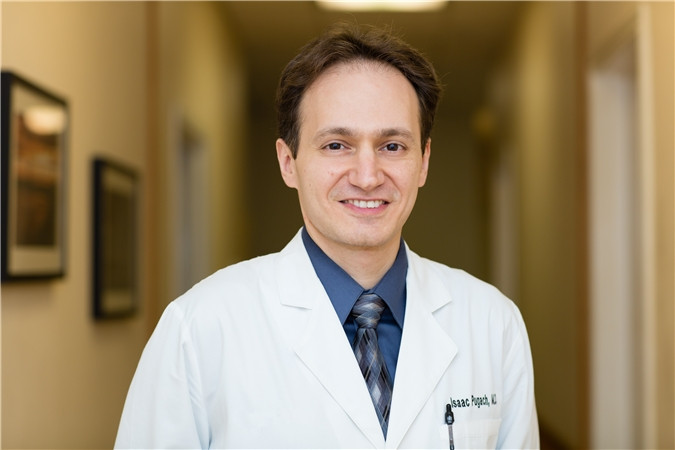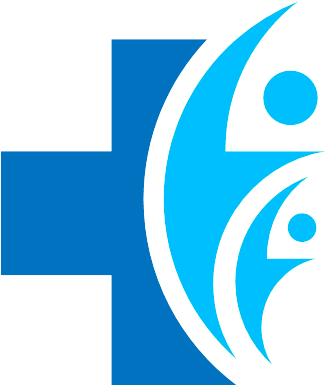Plano Hypertension Specialist
Dr. Isaac Z. Pugach, M.D.
Board-certified in Internal Medicine
• Medical school: The University of Texas at Galveston
• Finished in the top quarter of medical school class
• Completed residency training in New York City hospitals
• Board Certified in Internal Medicine since 2006
• Scored in top 10% of candidates on the certification exam
• Personally treated over a thousand hypertensive patients
As a board certified Internal Medicine specialist, Dr. Pugach specializes in hypertension and other adult weight-related diseases, such as high cholesterol and diabetes. In certain cases, Dr. Pugach can treat hypertension using a non-pharmacological means (without pills or injections), by an FDA approved method - other than diet and exercise. Ask Dr. Pugach about it, if you are interested. In addition, if you are on expensive blood pressure medications, in some cases, Dr. Pugach might be able to control your high blood pressure with safe and effective drugs that cost less than 10 dollars per month.
If in addition to high blood pressure, you have high cholesterol, and are experiencing intolerable side effects from your cholesterol medications, Dr. Pugach might be able to help you to decrease your cholesterol by using a different type of medications, or prescribe them in a fashion that will not cause intolerable side effects, or in some cases, or even use a diet supplement.
Hypertension FAQ
Answered by Isaac Pugach, M.D., a Plano hypertension specialist, who is board certified in Internal Medicine and is the medical director of Pure Spring Medical.
What is normal blood pressure?
Blood pressure is measured with two numbers: systolic (top) and diastolic (bottom) number. 120/80 or less is considered normal. If blood pressure is higher than 130/80, it is considered as hypertension, and might need to be treated. If blood pressure is higher than 140/90, it almost always will need to be treated. Either systolic(top) or diastolic (bottom) pressure elevation is called hypertension and is hazardous, even if the other number is in the normal range.
What are the symptoms of high blood pressure?
Majority of patients do not feel any symptoms of high blood pressure until it is too late. When hypertension is severe, a few of the symptoms that some patients may feel are as following: headache or pressure (especially at the top/back of the head), waking up two or more times at night to urinate, chest pain or pressure (especially with physical exertion or emotional stress), blurry vision, facial flushing, but very commonly, there are no symptoms until patient has a stroke or a heart attack.
How common is hypertension?
High blood pressure or hypertension is a serious condition affecting 30% of adults in United States. In the Dallas metroplex, the prevalence has been estimated to be around 25%. In Black people, the hypertension is even more common - in Texas, more than 40% are affected.
How does hypertension cause damage?
Just like an over-pressured water system will eventually result in a burst pipe, hypertension will cause your blood vessels to rupture. High blood pressure causes blood vessel damage over many years, causing blood vessels to become hard and brittle. The brittle blood vessels are much more likely to burst, causing a stroke or internal bleeding. When heart pumps hard against high blood pressure to get the blood moving, it overworks and enlarges, and that increases the risk of having a heart attack. Additionally, uncontrolled hypertension causes damage to the kidneys, which can result in damage that could require kidney dialysis.
Can medications prevent or reverse damage from hypertension?
Yes, absolutely! Medications that control blood pressure, over time, can reverse heart enlargement, which will decrease the risk of heart attack. Additionally, decreasing blood pressure to normal levels will significantly decrease the risk of having a stroke and kidney failure. Once you have a stroke or a heart attack, that damage mostly irreversible, so it is critical to get on medications before you have irreversible damage.
What can I do if I do not want to take medications?
If you are concerned about side effects and becoming dependent on the medication, it is quite understandable - and there are methods other than meds to lower the blood pressure. Weight loss of as little as 15 lbs can significantly lower blood pressure. Additionally, getting adequate sleep and avoiding excessive salt will decrease blood pressure. Walking for 40 minutes a day 5-6 days a week can drop blood pressure by 20 points, even without losing weight. Changing tight-fitting clothes and body-shapers to looser clothes can drop blood pressure by 10 points. Additionally, there is an FDA-approved method that does not involve diet or exercise, for certain patients with hypertension.
However, if these methods do not help, or if blood pressure is very high to begin with, it is important to start medications. In fact, if hypertension is severe, intense physical activity can actually cause a stroke, because the blood pressure rises even higher with hard exercise. There is no dependency formed by taking blood pressure medications, and they can be discontinued, if the underlying condition that cause high blood pressure is resolved - such as lack of aerobic exercise or being overweight.
Call our office at 972-792-7777 to schedule an appointment or if you any questions. We are located in Plano, near Richardson. Other areas that are close to us include Allen, North Dallas, Allen, McKinney, Garland, and North DFW.
Credentials:

Dr. Isaac Z. Pugach, M.D.
Pure Spring Medical
660 N Central Expy, Ste 640
Plano, Texas 75074








